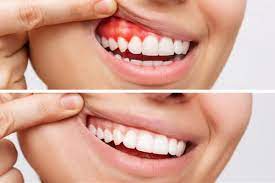
28 Aug Why Periodontists Are the Experts in Treating Gum Disease and Inflammation
Dealing with gum inflammation and discomfort can be a confusing experience. While your general dentist is a key partner in your oral health, sometimes you need a specialist. A periodontist is a dentist who specializes in the health of the gums and the bone that supports your teeth. They have advanced training in diagnosing, treating, and preventing gum disease, making them the experts in this area of dental health. Understanding their role can help you feel more confident about seeking the right care for your gums.
What Does a Periodontist Do?
A periodontist is dedicated to the health of your gums and jawbone. They complete several years of specialized education beyond dental school. This extensive training centers on the complex structures that surround your teeth, known as the periodontium. Their expertise allows them to handle everything from mild gum inflammation to severe gum disease.
Their work involves a detailed examination of your gums to assess their condition. They check for signs of inflammation, measure the depth of pockets between your teeth and gums, and evaluate how your teeth fit together when you bite. This comprehensive approach provides you with a complete picture of your gum health. They work to address issues that could affect the stability of your teeth and your overall oral wellness.
What Treatments Do Periodontists Offer?
When you see a periodontist for gum disease, they offer a range of treatments tailored to your specific situation. The goal is to control the condition and restore your gums to a healthier state. They will explain your options clearly for you to understand the path forward.
Some of the common treatments include:
- Scaling and Root Planing: This is a deep-cleaning procedure. Scaling removes plaque and tartar from above and below the gumline. Root planing smooths the tooth roots, helping the gums reattach to the teeth.
- Periodontal Maintenance: After initial treatment, regular maintenance cleanings are key. These appointments are more in-depth than standard cleanings and are designed to keep gum disease under control.
- Gum Grafting: If your gums have receded, a gum graft may help. This procedure involves taking tissue from another part of your mouth to cover the exposed tooth roots, improving both function and appearance.
- Dental Implants: For those who have lost teeth due to gum disease, a periodontist can place dental implants. These are artificial tooth roots that provide a strong foundation for replacement teeth.
These procedures are performed with precision to help you manage your gum health effectively. Your periodontist will guide you through the process, offering support and clear instructions for your care.
What Preventive Steps Are Recommended?
Preventing gum disease is just as significant as treating it. Your periodontist can provide practical advice to help you maintain healthy gums and avoid future problems. Following a consistent oral hygiene routine is the foundation of prevention.
Here are a few key steps:
- Brush Twice a Day: Use a soft-bristled toothbrush and fluoride toothpaste. Brushing removes food particles and plaque from the surfaces of your teeth.
- Floss Daily: Flossing is necessary for cleaning between your teeth and under the gumline, where a toothbrush cannot reach. This helps remove trapped plaque.
- Use Mouthwash: An antimicrobial mouthwash can help reduce bacteria in your mouth and contribute to healthier gums.
- Regular Dental Visits: Schedule regular checkups and cleanings with your general dentist. This allows any early signs of gum issues to be addressed promptly.
These simple, daily habits can make a significant difference in your long-term oral health. Your periodontist can offer personalized advice tailored to your specific needs.
Visit a Gum Disease Specialist
If you’re experiencing gum inflammation, bleeding, or discomfort, consulting a periodontist is a smart move. These specialists possess the expertise to diagnose and treat gum-related issues, working in conjunction with your general dentist to provide comprehensive oral care. Scheduling a consultation can help you understand your condition and develop a targeted plan to improve your gum health.

No Comments